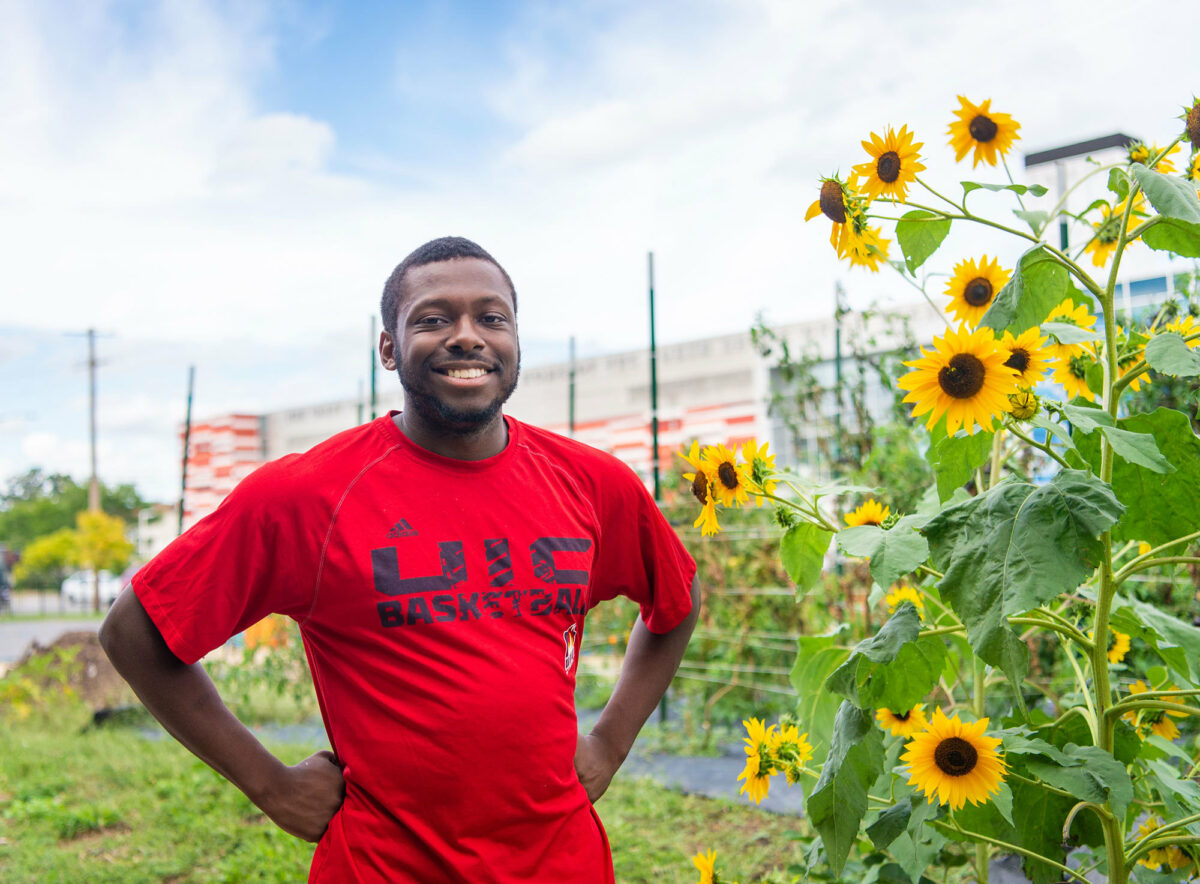
With all of this evidence on global warming, how do we convince more politicians and our president that this is a real issue?
—— Anthony Bonds, Comer Crops Crew
When it comes to politicians, you’ve got to speak to the issues, and promote the understanding that climate change is a really multifaceted and complicated issue.
—— Shannon Valley, PhD Student, Georgia Tech
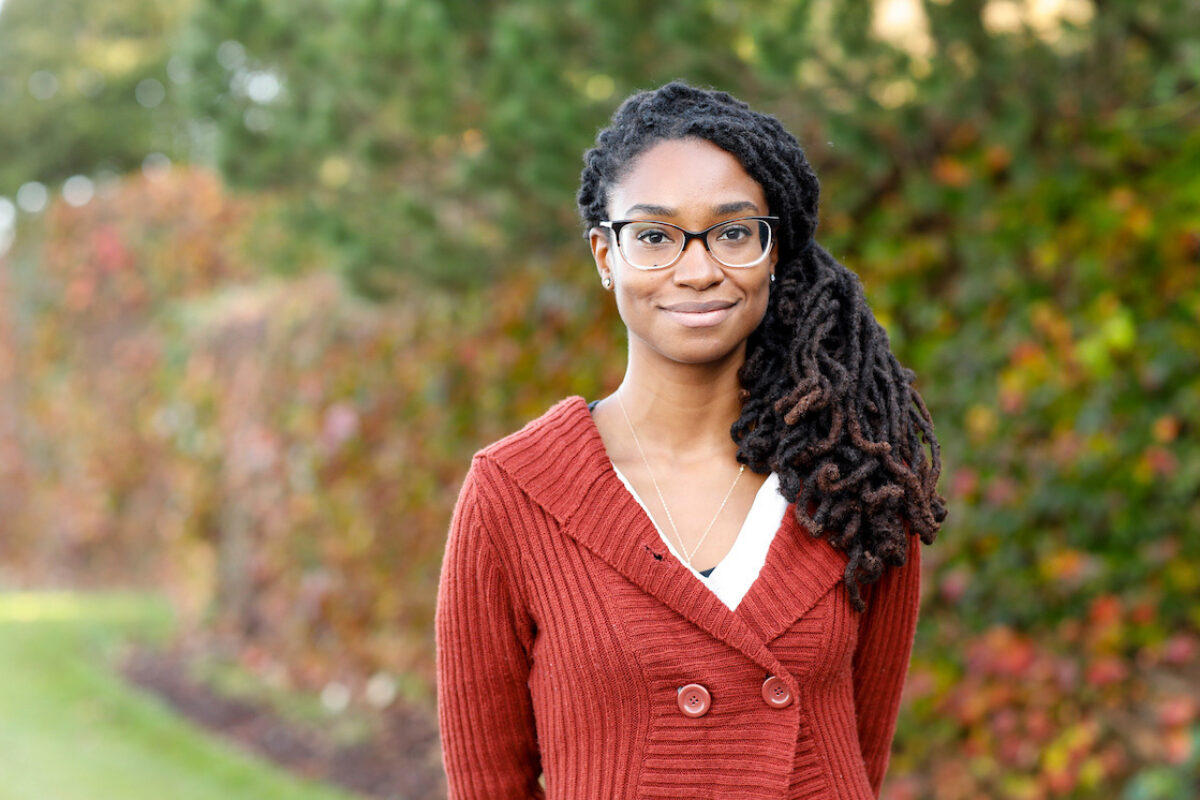
I think there's a couple of reasons why some people are hesitant to feel convinced about the evidence. I think one issue is that there's fear around the idea that if we are responsible for climate change, then what do we do about it? And, what those actions imply for the decisions that we all need to make. Speaking from my experience with working with members of Congress, who told me, "I get it. I trained in science. I have science advisers here. But I was sent to Congress to do X, Y and Z. I need to cut the budget. I need to do this, that, and the other. So, I can't think about losing jobs because we need to move away from certain industries to reduce greenhouse gas emissions." But sometimes it was worthwhile to talk to congressperson about things going on in their district. If it's an agricultural issue, you could talk to them about the impact climate change has on agriculture that affect livelihoods of the people that they represent. There are more devastating storms that we see, things like the king tides, high tides that are showing in clear weather in a lot of places. There are things happening that are obvious, and that you don't have convince anyone. You may be able to help them draw the connections between what we know scientifically as to why this is happening and what they're seeing outside of their windows. I think the important thing in talking to folks who are more skeptical or resistant is to understand that to persuade people, a lot of times you need to acknowledge their concerns and their values, and what changing their mind might mean to them. People may need to feel reassured that you can still be a person who loves cars and loves air travel, who also recognizes what's going on in the environment. If people who may not consider themselves a conservationist, but they may recognize that there are [power?] plants nearby that are emitting CO2 and that are causing disproportionate health effects within their communities. Sometimes it's just a matter of saying, "You know what? Forget about climate change. If we reduce the emissions that we know are furthering climate change, that can also help your community by removing other add-on effects." There are lot of different approaches. I think fundamentally it goes back to listening to people’s concerns first and really understanding what their communities and constituencies. When it comes to politicians, [you’ve got to] speak to the issues, and promote the understanding that climate change is a really multifaceted and complicated issue. There are opportunities to improve lives holistically through jobs and social justice while addressing climate change.
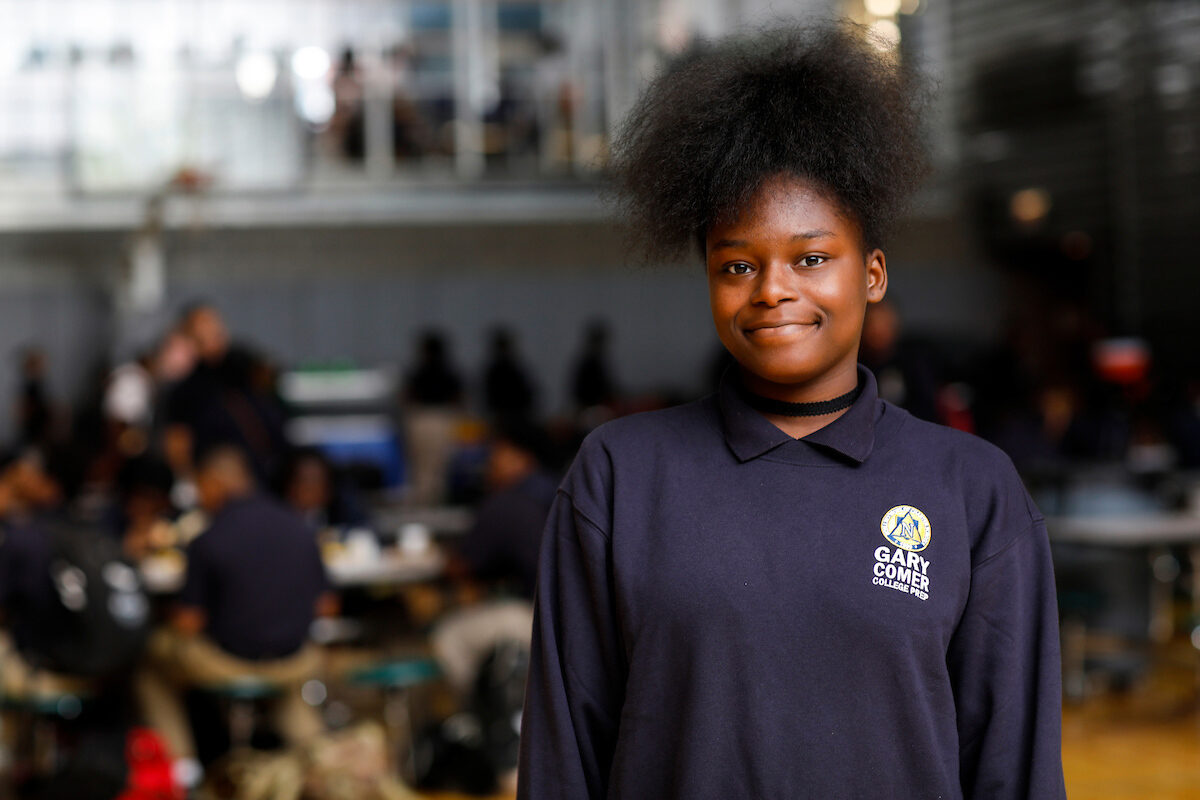
Can you name at least one universal problem that you think you can solve by doing what you do?
—— Jasmin Joyner, Gary Comer College Prep
I think one universal problem that we can solve with the work that I do is that we're all really concerned with what we need to be prepared for in the future, and how we can better plan and develop mitigation strategies. My work focuses on analyzing or evaluating climate models that are used to make those future projections. The overall goal of my research is to compare the models against real-life? observations to get an idea of how well these models represent the world. We can work towards building better models in order to reduce uncertainty about what the future might be.
—— Becki Beadling
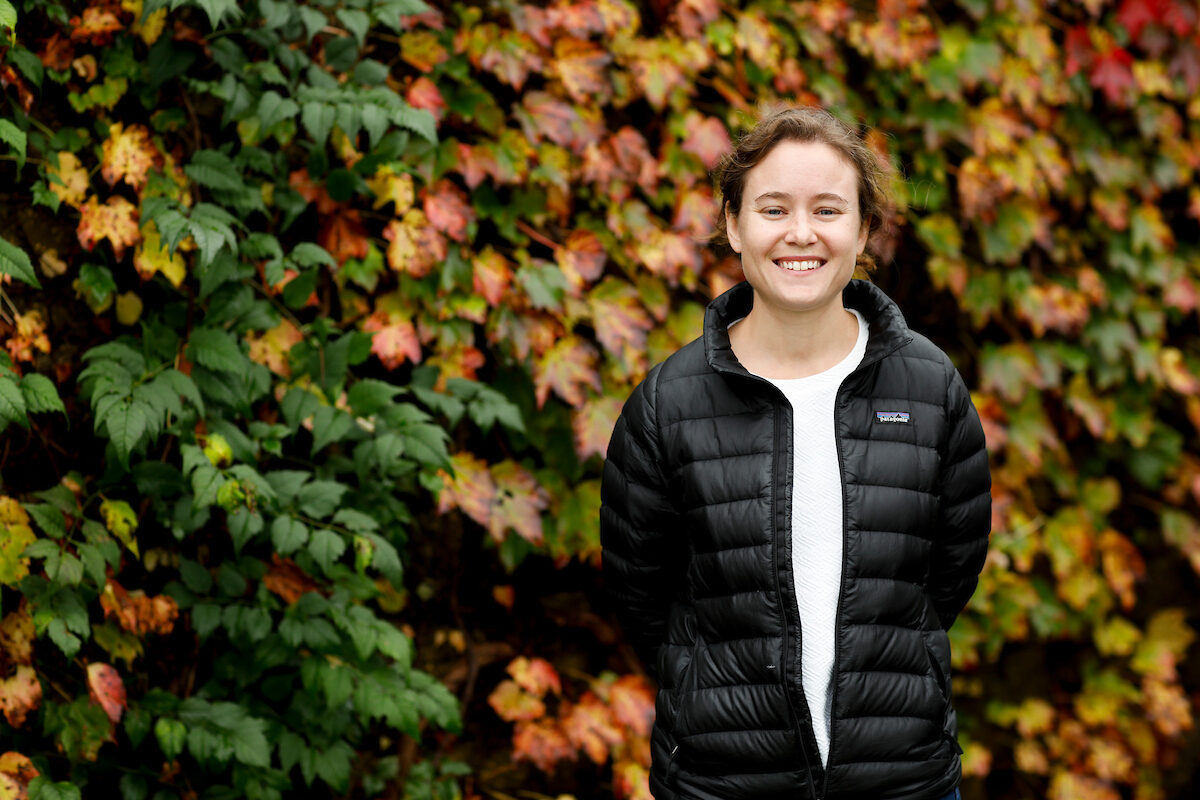
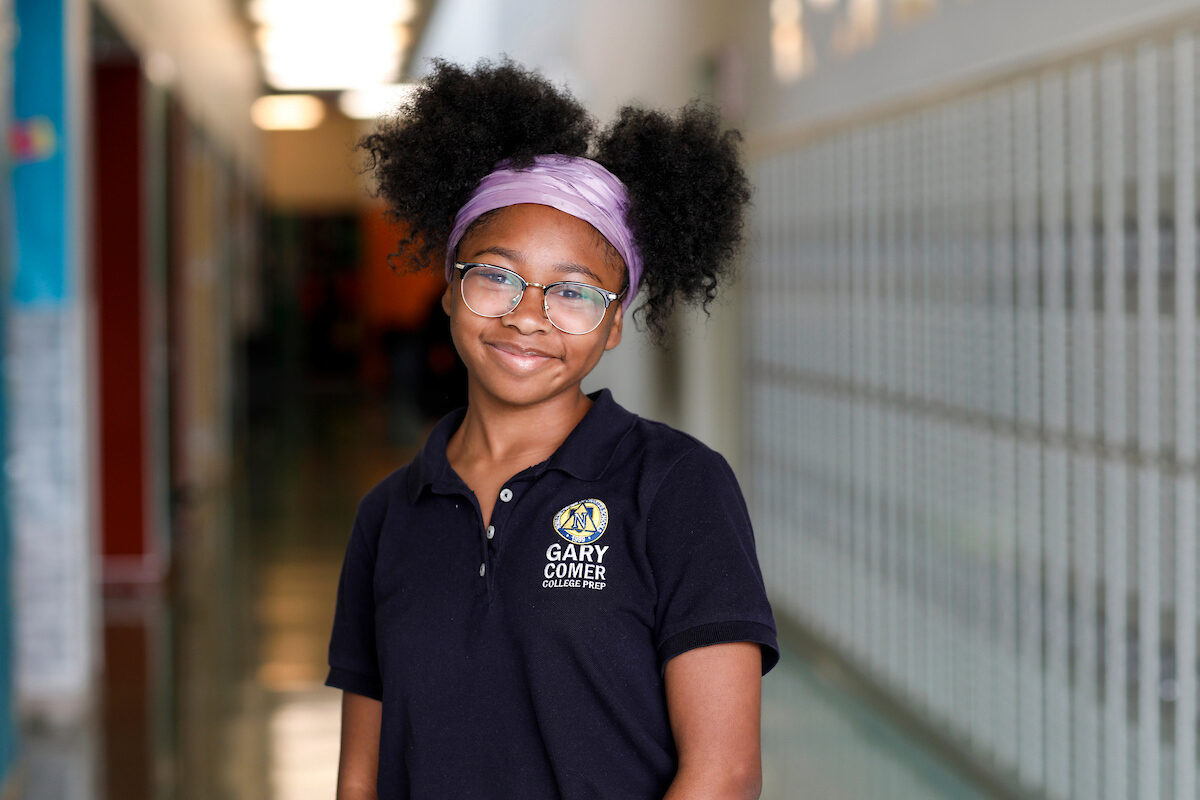
How does it feel to study the unknown?
—— Nina Harris, Gary Comer College Prep
"That's a legitimate science question because as research scientists what we do is study things in books, things that are very well known. You're basically repeating things that other people have done. In graduate school, you start to crawl out on the edge of where we've ever been, what we've ever done, what we've ever measured, what we understand. When you write your dissertation, you're writing about something no one else has ever done. It feels exposed and tremendously dangerous to be out here on the tippy edge of what humanity has ever achieved. It’s a little bit scary. And it's also like being on a roller coaster. It's thrilling. Some people grip really hard, like, "Oh, this is scary." I tend to be one of those people with hands up saying “Whoooooo!" Because, in fact, we crawl out, and we see what we can do. And then we find out, "Was I right?" What a great question, the unknown. Shakespeare called the future the “undiscovered country.” The place we've never been. Teaching young people is about trying to get them to come out to the edge with me because the unknown is the future. They are my window to the future and I'm their window to the past. They can never go back and experience what I did. I can never go forward and experience what they do. But, together in a class, we collaborate to create the future of all of us. It's so exciting to be doing that in a climate change or an oceanography course where the whole world is changing. I'm just trying to get these young, amazing people ready to tackle not just the frontier of knowledge, but to create the world that they want to live in and that they want their grandchildren to live in. It's not just me. It's not just them. It's that long chain of love that stretches out in front of us that we're just trying to get ready for. Teaching students is a force multiplier. There's everything I can do, and then there's everything I can do and all my students."
— Joellen Russell
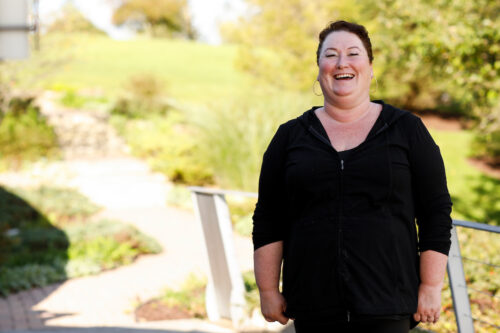
Q
—from Anthony Bonds, Comer Crops Crew

A
—from Shannon Valley, PhD Student, Georgia Tech

When it comes to politicians, you’ve got to speak to the issues, and promote the understanding that climate change is a really multifaceted and complicated issue.
I think there's a couple of reasons why some people are hesitant to feel convinced about the evidence. I think one issue is that there's fear around the idea that if we are responsible for climate change, then what do we do about it? And, what those actions imply for the decisions that we all need to make. Speaking from my experience with working with members of Congress, who told me, "I get it. I trained in science. I have science advisers here. But I was sent to Congress to do X, Y and Z. I need to cut the budget. I need to do this, that, and the other. So, I can't think about losing jobs because we need to move away from certain industries to reduce greenhouse gas emissions." But sometimes it was worthwhile to talk to congressperson about things going on in their district. If it's an agricultural issue, you could talk to them about the impact climate change has on agriculture that affect livelihoods of the people that they represent. There are more devastating storms that we see, things like the king tides, high tides that are showing in clear weather in a lot of places. There are things happening that are obvious, and that you don't have convince anyone. You may be able to help them draw the connections between what we know scientifically as to why this is happening and what they're seeing outside of their windows.
I think the important thing in talking to folks who are more skeptical or resistant is to understand that to persuade people, a lot of times you need to acknowledge their concerns and their values, and what changing their mind might mean to them. People may need to feel reassured that you can still be a person who loves cars and loves air travel, who also recognizes what's going on in the environment. If people who may not consider themselves a conservationist, but they may recognize that there are [power?] plants nearby that are emitting CO2 and that are causing disproportionate health effects within their communities. Sometimes it's just a matter of saying, "You know what? Forget about climate change. If we reduce the emissions that we know are furthering climate change, that can also help your community by removing other add-on effects." There are lot of different approaches. I think fundamentally it goes back to listening to people’s concerns first and really understanding what their communities and constituencies. When it comes to politicians, [you’ve got to] speak to the issues, and promote the understanding that climate change is a really multifaceted and complicated issue. There are opportunities to improve lives holistically through jobs and social justice while addressing climate change.



